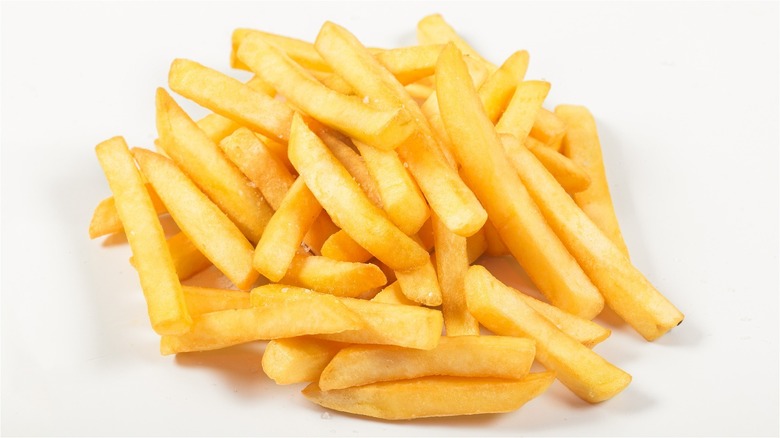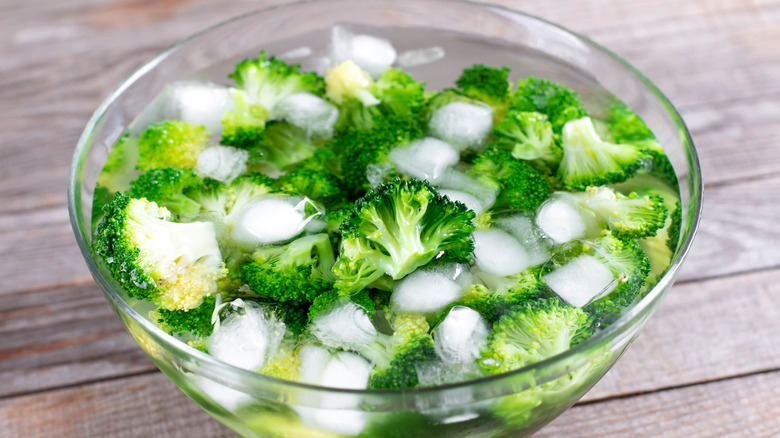The Step You Need To Take Before Freezing Homemade French Fries
Why make homemade french fries when you could just drive to your nearest grocery store and get a ready-to-heat bag? That's easy: You get to master your favorite fried snack and save some bucks while you're at it. Making your own fries means you can select the shape, thickness, and other details that create the perfect batch for you. Plus, you get to choose the amount and type of oil you use, or even cook them in an air fryer to cut down on cleanup.
If you're eager to achieve those restaurant-quality, crispy-on-the-outside and fluffy-on-the-inside results, be sure to blanch your potato rods before frying them. Blanching is the process of briefly boiling a food to give it a barely cooked tenderness, then transferring it to ice-cold water to halt the cooking process and preserve its texture and color. When it comes to fries, blanching removes some of the starch found in potatoes, as well as excess moisture, which ensures a fluffy yet crispy texture even if you freeze them before frying.
Make blanching a regular part of your kitchen prep, and you'll find that it not only results in better make-ahead fries — but it's also a worthwhile habit for a variety of vegetables and ingredients.
Blanching makes most veggies look and taste better
The reason you should blanch vegetables before freezing them is the same reason you should blanch french fries: It helps maintain their appealing color, texture, and flavor. Not only does a brief dunk in boiling water and ice water keep your fresh asparagus or artichokes from turning brown, but it also cleans the produce and preserves its vitamins, per the National Center for Home Food Preservation.
Blanching is a game-changing habit you can incorporate after arriving home from the grocery store or farmers market. Before putting your cauliflower florets in the freezer for a future mashed cauliflower recipe, give them a quick blanch in salted water. This will season the veggies from within for maximum flavor. Plus, the partial cooking process means they'll be ready in less time.
You can even blanch delicate herbs like basil, cilantro, and mint, which keeps them bright green and fragrant even when you buzz them up in a food processor for sauces and dressings. This additional step will make the most out of your produce, reducing waste and improving your meals in the process.

